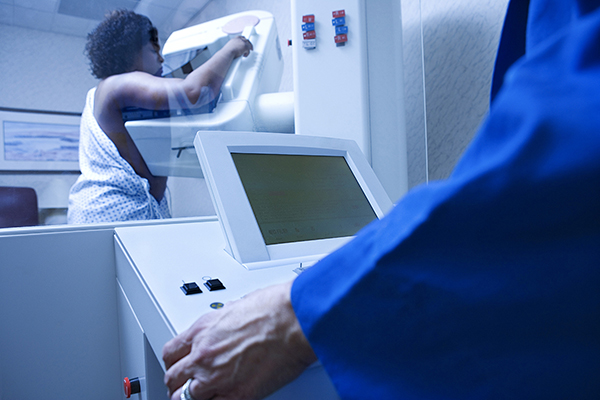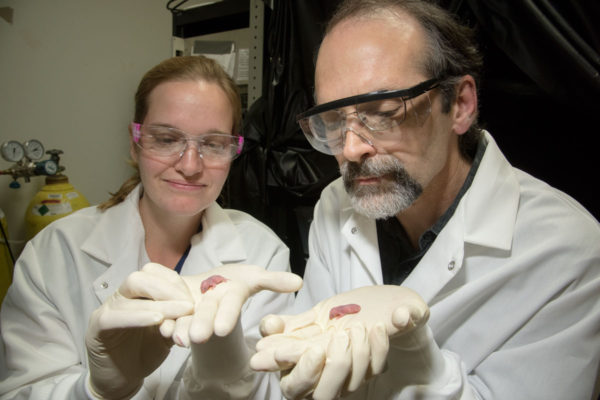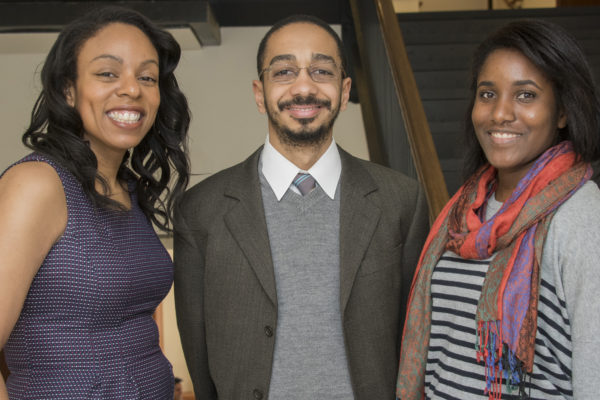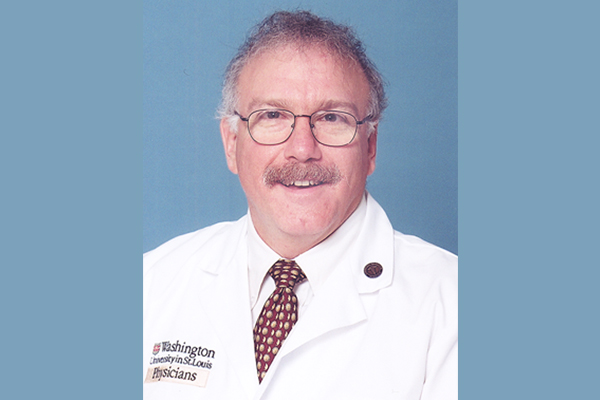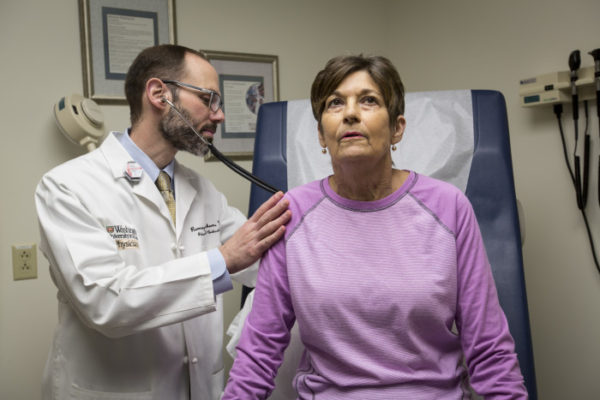Two juniors win Goldwater scholarships
Two juniors at Washington University in St. Louis have been awarded the Barry M. Goldwater Scholarship for the 2016-17 academic year. They are Trevor J. Krolak, a biology and neuroscience major, and Krishna S. Paranandi, who is majoring in molecular biology and biochemistry, all in Arts & Sciences.
Delaying radiation therapy for women with very early breast cancer ups recurrence
Delaying radiation therapy too long after surgery significantly increases the risk of recurrent tumors in women treated for very early, or what is referred to as “stage 0,” breast cancer, according to new research at the School of Medicine.
Obituary: Michael Purdy, medical sciences writer, 47
Michael C. Purdy, a medical sciences writer in the Office of Medical Public Affairs, died Thursday, April 14, 2016, in St. Peters, Mo. He was 47.
Med school research offers new insight into stuttering
Mice that vocalize in a repetitive, halting pattern similar to human stuttering may provide insight into the condition, according to new School of Medicine research. They can help scientists understand the disorder’s molecular and neurological basis.
Weilbaecher elected to Association of American Physicians
Katherine Weilbaecher, MD, a Washington University professor of medicine, has been elected to the Association of American Physicians, a leading medical group of more than 1,300 active members.
Three doctoral candidates inducted as Bouchet fellows
Three doctoral candidates were inducted into the Edward A. Bouchet Graduate Honor Society at the annual Bouchet Conference on Diversity in Graduate Education April 1-2 at Yale University.
For women, waiting to have children until after 30 minimizes career income losses
Working women who want to minimize career income losses related to motherhood should wait until they are about 30 years old to have their first children, suggests new research from Washington University in St. Louis.
Stressed? There’s an app for that
After learning that local veterans were facing long waits for mental health services, a team of medical and engineering students at Washington University in St. Louis wanted to help in some way. The team created an app that measures a user’s stress and suggests steps to take to alleviate it.
Picus receives AMA radiology award
Daniel D. Picus, MD, a professor of radiology and of surgery at Washington University School of Medicine in St. Louis, has received the American Medical Association Radiology Current Procedural Terminology Burgess Gordon Memorial Award.
Surgeons test technology with potential to expand lung transplant donor pool
As part of a clinical trial at the School of Medicine, lung transplant surgeons are evaluating whether a sophisticated device can recondition subpar donor lungs to make the organs suitable for transplant. The device has potential to expand the number of donor lungs that can be transplanted, potentially helping the 1,480 patients currently waiting for lung transplants.
View More Stories

